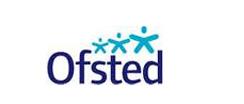Ofsted Subject Reports 2001-02: Primary Science
This report from Ofsted is one of a series that were published annually in association with the Annual Report of Her Majesty's Chief Inspector. The report gives the main findings of Ofsted concerning the state of science education for students aged from 3-11.
The evidence base, which the report is based upon, includes data gathered through the Section 10 inspection of Schools, which involved science specific inspectors gathering evidence and writing subject specific sections of the report.
The evidence base also included data from subject specific inspection of a sample of primary schools.
The 2001-02 report gives a range of findings including:
• Standards in primary science remain almost unchanged since last year. Results in national tests rose by one third in the previous five years.
• Much of this progress resulted from improved teaching and learning. However, there are signs that excessive preparation for external assessment is having a narrowing effect on pupils’ experience of science, particularly towards the end of Key Stage Two, and test results are no longer rising.
• Teachers’ knowledge of science and their confidence in teaching it to younger children have improved. Key Stage Two teachers’ knowledge is lacking in some respects, specifically in relation to physical processes and scientific enquiry.
• Most schools now make extensive use of the DfES/QCA scheme of work in their planning for Key Stages One and Two.
• Although ICT hardware has become much more readily available in primary schools as a result of government initiatives, there has been only limited increase in the use of computers in science.
• Practical activity remains at the heart of science in many schools, but has diminished considerably in a few.
There is commentary on:
-Maintaining improvement
-Consolidating learning
-Using practical activity to extend all pupils
-Making better use of data collection and analysis
Show health and safety information
Please be aware that resources have been published on the website in the form that they were originally supplied. This means that procedures reflect general practice and standards applicable at the time resources were produced and cannot be assumed to be acceptable today. Website users are fully responsible for ensuring that any activity, including practical work, which they carry out is in accordance with current regulations related to health and safety and that an appropriate risk assessment has been carried out.





